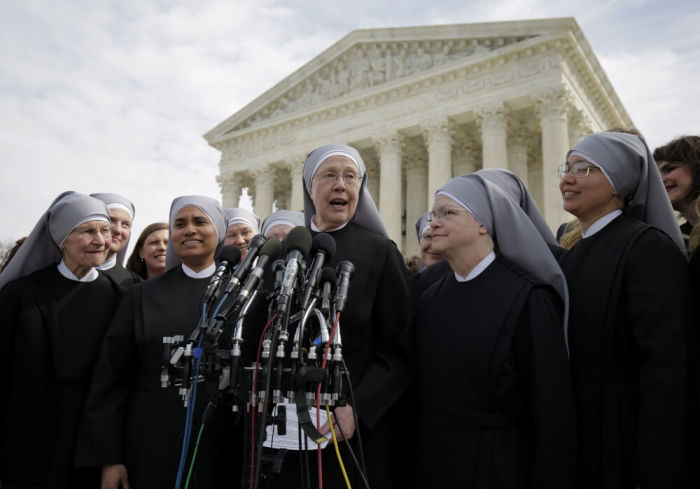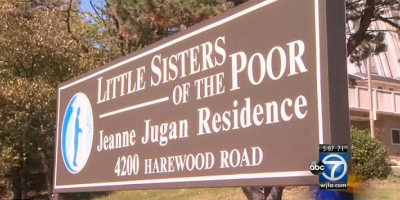53 Percent Say Making Nuns Participate in Obamacare Birth Control Mandate Is Unfair

A recently released poll found that a majority of Americans believe the federal government's treatment of the Little Sisters of the Poor is "unfair."
In a Marist Poll conducted for the Knights of Columbus, 53 percent of adults surveyed said that the birth control mandate accommodation given to the nuns was "unfair," versus 32 percent who found it "fair."
The results also found a strong political divide among respondents. While 63 percent of Republicans found the accommodation unfair to the nuns, only 44 percent of Democrats agreed.
Also while 43 percent of Democrats considered the accommodation fair, only 21 percent of Republicans agreed. Independents were between them, with 31 percent considering it fair and 56 considering it unfair.
The Knights of Columbus and supporters of the Little Sisters championed the findings, noting that those who found it unfair held a 20-point majority over those who found it fair.

"It is not reasonable for the government to demand that some — and only some — religious employers engage in activity that is totally unnecessary to the government's stated purpose of providing elective and morally problematic drugs to employees," stated Supreme Knight Carl Anderson.
"Such action doesn't just violate the rights of employers like the Little Sisters, it is also at odds with the American people's understanding of basic fairness, and our long-standing commitment to protecting the deeply-held beliefs of every American — especially when those beliefs are the minority view."
In September of 2013, the Little Sisters filed a lawsuit against the Health and Humans Services Department over the birth control mandate.
While the mandate exempted houses of worship automatically under the "religious employers" category, the nuns did not receive an automatic exemption, but instead received an "accommodation."
Under the accommodation, the Little Sisters do not need to cover birth control in their insurance, but they must certify that they seek the accommodation, allowing employees to get birth control coverage indirectly.
The Little Sisters argue that certification makes them complicit in sinful actions and that they should receive the same exemption given to churches.
In December 2014 the Tenth Circuit heard oral arguments in the Little Sisters' lawsuit and in July ruled against the nuns.
Mandate supporters, including the Washington, D.C.-based group Americans United for Separation of Church and State, celebrated the Tenth Circuit's decision.
"Many of the employees who work at the Little Sisters' nursing homes are not nuns. We don't know how many of those employees want or need access to contraceptives, but not a single nun is being forced to pay for those medications under the Affordable Care Act," argued Simon Brown of Americans United.
In July, the Little Sisters filed an appeal with the Supreme Court and in November the highest court in the land agreed to hear arguments, which were held last month.
Conducted April 8-12, the sample space was comprised of 1,020 adults living in the continental United States who were interviewed over the telephone.
The full question wording was: "The Affordable Care Act requires many employers through their health plan to cover contraceptives including drugs that cause abortion. Some religious employers are fully exempt and don't have to participate if it violates their religious beliefs. But, other ministries with similar beliefs, including the Little Sisters of the Poor, are not exempt unless they sign a form directing their contractors to deliver such coverage through the ministries' own health plan. Which comes closer to your view: This process required by the government is fair to ministries like the Little Sisters or This process required by the government is unfair to ministries like the Little Sisters?"





























